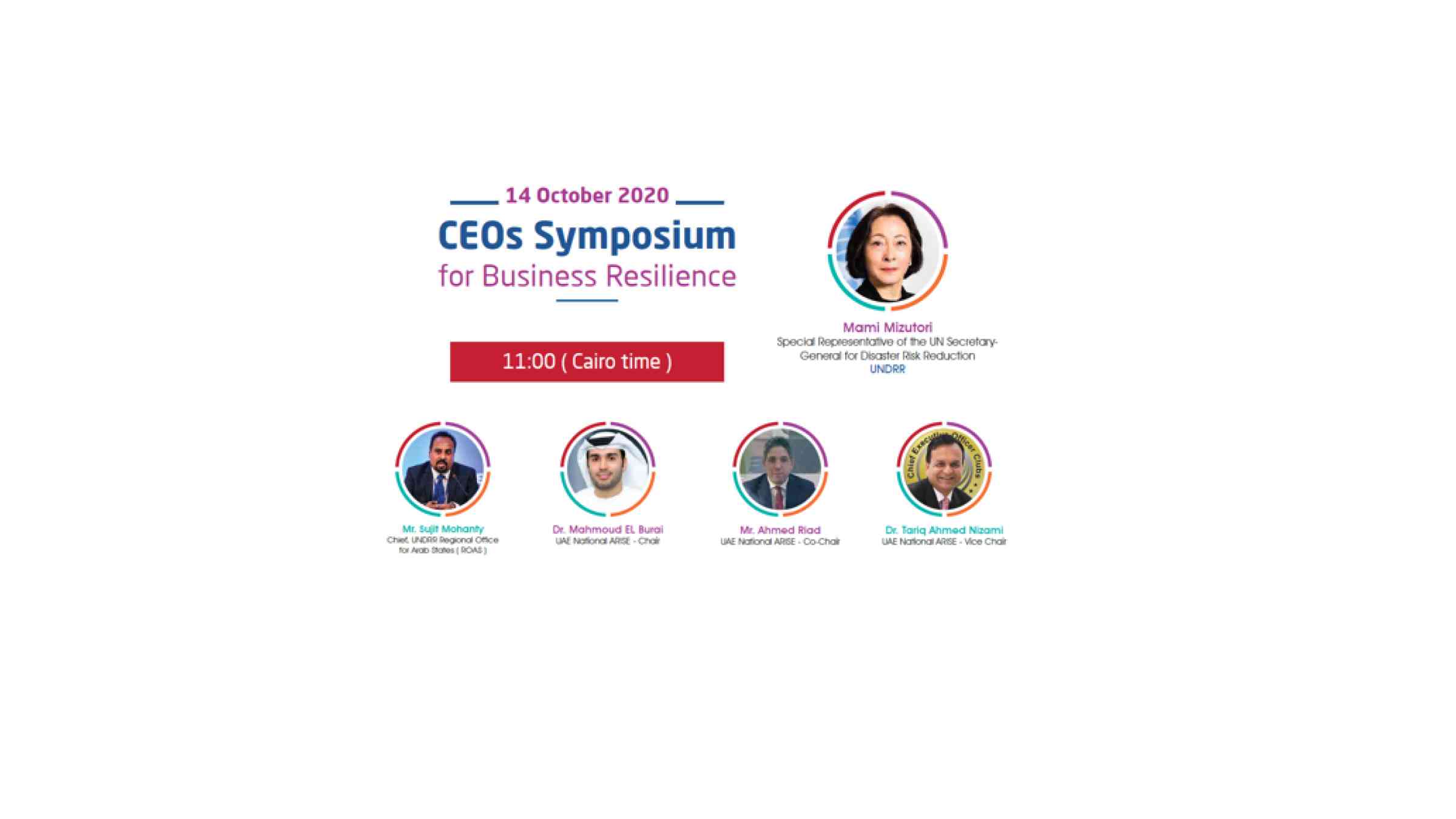CEOs Symposium for Business Resilience

https://undrr.zoom.us/webinar/register/WN_01XafMkqRzawMEiIJ5D-4Q
Background:
The Sendai Framework states that addressing underlying disaster risk factors through disaster risk-informed public and private investment is more cost-effective than primary reliance on post-disaster response and recovery. In addition, reducing climate and disaster risk is a critical element for long term sustainable development. Trillions of dollars of new investments are expected in hazard-prone areas by 2030, dramatically increasing the global value of assets at risk. How disaster risk is considered and managed in capital investments, supply chains and operations will be a decisive factor on achieving the Sendai Framework targets.
In line with the guiding principles on inclusivity and shared responsibility, the Sendai Framework recognizes and describes the critical role of all stakeholders, beyond states, in light of their competence and resources and thus potential contribution toward disaster risk management. Therefore, the Sendai Frameworks calls for new opportunities for partnerships and the strengthening of governance mechanisms at their various levels.
Businesses themselves face a number of threats from both man-made and natural hazards which can significantly affect business operations, disrupt local, national and global supply chains or, of course, put the lives and well-being of employees and customers at risk.
Private sector activities are vital to national and regional economies, not only as providers of products and services, but also as employers and investors. Enhancing and nurturing a resilient private sector will in turn help to protect years of investment and development. The private sector resilience and its resilient practices are linked to a community ability to absorb and mitigate the effects of a disaster.
The Sendai Framework recognizes that disaster risk reduction requires an all-of-society engagement and partnership. ARISE, the Private Sector Alliance for Disaster Resilient Societies, is a network of private sector entities led by the UN Office for Disaster Risk Reduction (UNDRR). ARISE is a private sector initiative, which in conjunction with the UNDRR, works towards a resilient, prosperous future where fewer lives are lost to disasters, capital assets and investments are risk-informed, and infrastructure is resilient to natural and man-made hazards. Members voluntarily commit to support and implement the Sendai Framework Disaster Risk Reduction 2015 - 2030, aligned with the 2030 Agenda for Sustainable Development and its Sustainable Development Goals (SDGs), Paris Climate Agreement, New Urban Agenda and Agenda for Humanity. In line with the ARISE initiative, UAE business leader stepped up to establish the UAE chapter of the ARISE initiative in September 2020.
The ARISE-UAE calling the Chief Executives and business leaders to promote, create awareness and advocate for business resilience from natural, man-made hazards and pandemics such as the COVID19.
Business leaders and CEOs shall call for action and commitment in line with ARISE commitments:
a) Raise Awareness: Awareness raising with respect to disaster risk and mobilization of the private sector;
b) Influence: Exercising influence in respective spheres of expertise;
c) Share Knowledge: Share knowledge, experience and good practices amongst the private sector; d) Catalyse: Be a catalyst to generate innovation and collaboration in developing risk-informed business strategies;
e) Implement: Implement projects and activities to achieve the targets of the Sendai Framework.
Objective:
Led by the ARISE -UAE and UNDRR Regional office for Arab States, the symposium aims at increasing the outreach to business leaders; highlighting the role of the private sector in disaster risk reduction (DRR), with a focus on the strong contributions that can be made by private businesses across sectors.
The webinar intends to identify considerations for risk sensitive investments in the UAE and the Arab States region; highlight the need and the positive role of business continuity plans and its impact on the economy. Also, to define the role that the private sector ranging from Micro-to-Macro enterprises must improve managing risk and how to avoid creating new risk by systematically reducing existing risk. The webinar will elaborate on how we can strengthen capacity of people, communities, countries, and systems to anticipate, withstand and recover better from shocks and stresses and transform through crises. The webinar seeks engagement of CEOs from a multi-disciplinary business sector to create the much-needed awareness and commitment of action through the CEOs network in UAE and in the region.
Duration: 2 hours
Language: English/
For more information, please contact: UNDRR-Regional Office for Arab States.